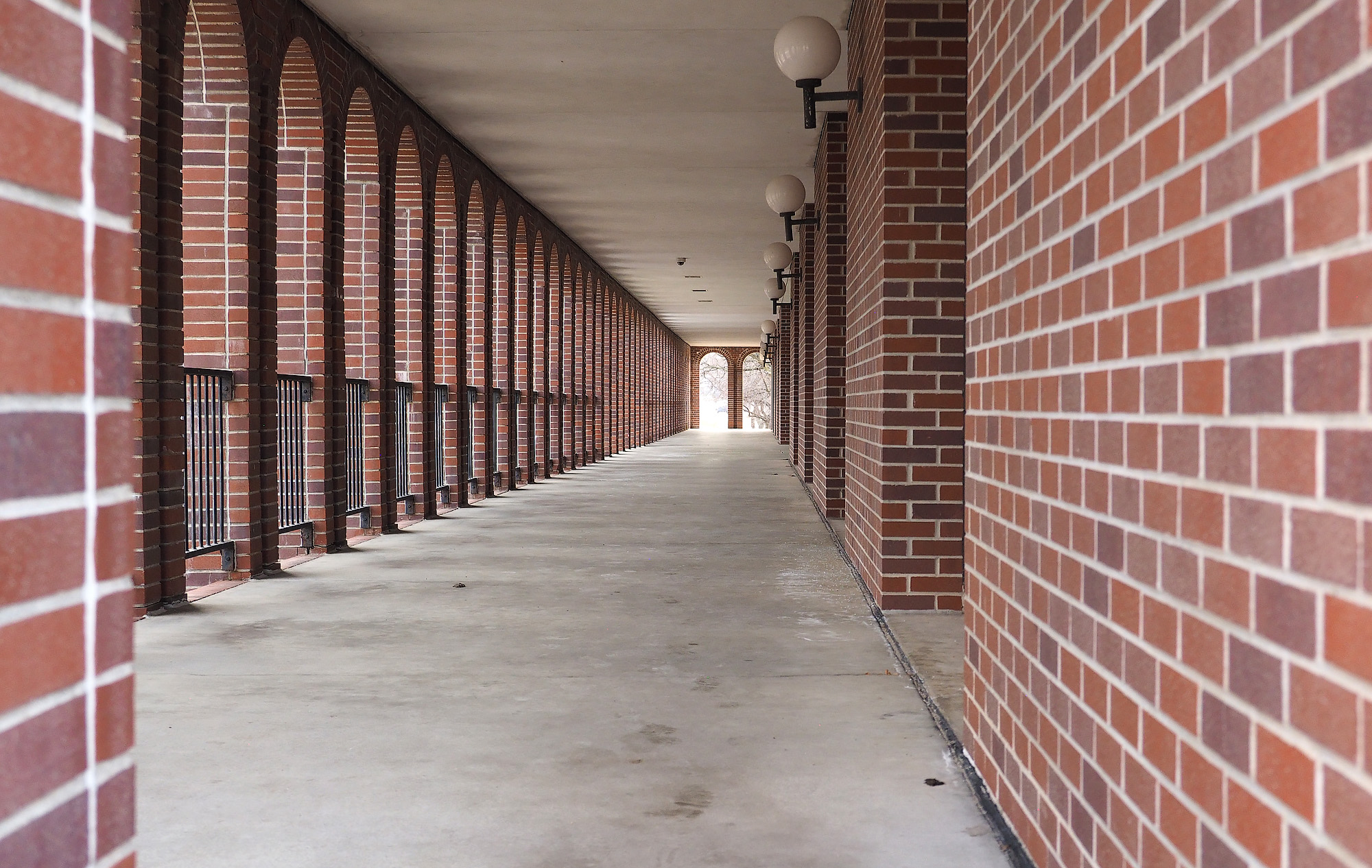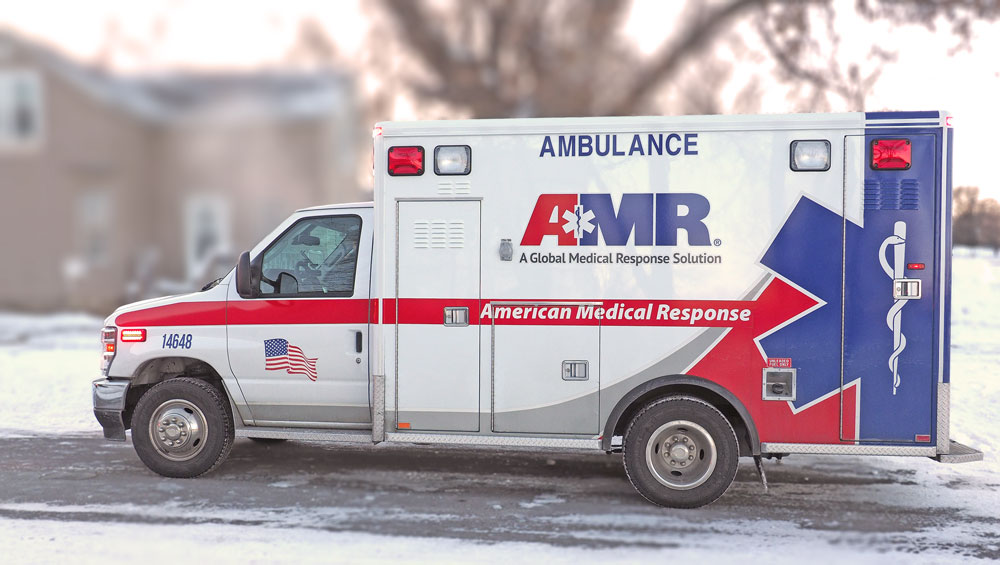Floyd County supervisors discuss special or general election for an EMS levy vote
By Bob Steenson, bsteenson@charlescitypress.com
The members of the Floyd County EMS Advisory Council had voted unanimously recently to recommend that the county Board of Supervisors call for a special election in September, regarding a countywide emergency medical services support levy.
Their reasoning was that the levy would have a better chance of being approved if it was the only item on the ballot and people who voted understood what their vote meant.
But Supervisor Chair Mark Kuhn at the supervisors meeting this week read a list of reasons he thinks the general election would be the better choice, adding that the Advisory Council’s reasoning sounds to him “like voter suppression.”
At an EMS Advisory Council meeting Thursday evening, members discussed Kuhn’s remarks – which he had also emailed to each of the Advisory Council members – and said that while they know the decision is up to the supervisors, they were going to stick with their recommendation and remained confident it was the better choice.
The item was listed for discussion at the Board of Supervisors meeting this week, and no decision on the timing for an EMS levy vote was made.
Regardless of whether the question is on a ballot in September or November, Floyd County voters are likely to get the chance yet this year to decide if they support creating a new tax to raise money to support EMS, especially to support ambulance service in the county.
Charles City Council member Pat Lumley, the chair of the EMS Advisory Council, told the supervisors at their meeting Monday morning that his group realizes there is an extra cost involved in holding a special election, but they think the question should be decided at an election where it is the only issue being considered.
At their meeting Thursday, members of the Advisory Council again discussed their reasoning.
Lumley, referring to Kuhn’s voter suppression remark, said, “I take that very seriously. At no time did we ever discuss suppression of voters. The intent of the recommendation is and always has been to vote on the EMS tax levy on its own merits.”
Passage would require a 60% majority, regardless of whether at the general election or a special election, he said.
Lumley also mentioned that the 2018 county vote on whether to approve issuing $13.5 million in bonds to build the Floyd County Law enforcement Center and pay for courthouse updates had been a special election.
Although Lumley didn’t say it, Kuhn had been a member of the Board of Supervisors then and was part of the unanimous decision to hold the bond vote at a special election.
Dawnett Willis, the CEO of the Floyd County Medical Center and co-chair of the Advisory Council, said Thursday evening, “We know this is a big election coming up in 2024, in November. It’ll be all about Biden or Trump, wherever you are, whatever side you’re on. We want (the EMS levy) to stand alone because it’s so vitally important.”
Willis also said she “kind of took it offensively” when Kuhn talked about voter suppression, and she wanted to go on the record as to why she thinks such an important question as the EMS levy should be done at a special election.
Charles City Fire Chief Marty Parcher, a member of the Advisory Council, said this election will be more chaotic than usual with the presidential race, which will take attention away from anything else on the ballot.
“This is vital that people who vote on this know what’s at stake,” Parcher said.
Mayor Dean Andrews, who isn’t a member of the Advisory Board but was at the meeting Thursday, said what’s at stake is services. The city cannot afford to continue subsidizing ambulance service out of its general fund, and if the EMS levy doesn’t pass, services will have to be cut – either ambulance service or other services provided by the city, he said.
Andrews urged the Advisory Council to keep its recommendation for a special election.
Kuhn, at the supervisors meeting Monday, said he had gotten figures from the county auditor regarding turnout in recent elections.
“The last general election that occurred during the presidential election was in 2020, and at that time 8,081 voters in Floyd County participated in that election,” Kuhn said. In the gubernatorial election in 2022, 5,798 voters participated, he said.
“The last two special elections countywide received far less voter turnout,” Kuhn said, referring to the special election to decide if the supervisors should be split into districts which had 1,863 voters, and the special election bonding for the the Law Enforcement Center and courthouse update project, which had 1,787 voters participate.
Kuhn said he had listened to some of the EMS Advisory Council meetings and had read their minutes, and “almost all the discussion I’ve heard regarding the date of the EMS tax levy election is focused on which date would be easier to get 60% approval of county voters, and virtually nothing on the increased burden on taxpayers who will pay the tax.”
He said he had three reasons he thinks the EMS tax levy question should be on the general election ballot in November – the same three reasons he later emailed to the Advisory Council members.
First, Kuhn said, based on discussions by the Floyd County Ambulance Commission and the EMS Advisory Council, it is likely that the council will recommend the supervisors seek the maximum property tax of 75 cents per $1,000 of taxable valuation that state code allows for an EMS levy, and ask voters to approve it for a period of 15 years.
“I believe that should be considered by the higher number of voters who will turn out in the general election, not the far fewer number of voters who would decide the fate of the tax levy in a special election,” Kuhn said. “I just don’t buy the argument that voters won’t take the time to understand the importance of the issue and that they’ll simply vote against increasing their taxes.”
A similar question on a Floyd County EMS support levy in the 2022 general election was not approved, receiving 2,622 votes “yes,” or 48.2%, and 2,813 votes “no.”
Kuhn said the job of the EMS Advisory Council is to educate the voters and then let them decide the outcome.
“Recommending the special election to be held in September to reduce the total of number of voters needed to approve the tax levy – and that’s what I heard was the primary reason – reduce the total number of voters needed to approve the tax levy, sounds a lot like voter suppression to me,” Kuhn said.
“The tax levy could raise almost $777,000 annually, starting in July of 2025. That amounts to a potential tax increase over a period of 15 years up to $11.655 million,” Kuhn said. “It’s just my personal belief, as one supervisor, that the question to approve the EMS tax levy deserves the scrutiny of the maximum number of voters in the general election in November.”
Advisory Council members at their meeting Thursday said the tax levy is an “up to” amount. While the maximum amount might need to be collected in the first couple of years if the county and city decide to form a public ambulance service, later years after the service is established and bringing in revenue are likely to require less than the full amount.
The Board of Supervisors would decide every year how much needed to be collected and what the levy should be, up to the maximum approved by voters. And the money can only be spent to support EMS services.
His second reason, Kuhn said Monday, is that there will be two new members on the Board of Supervisors beginning next year, because neither he nor Supervisor Jim Jorgensen is running.
The candidates for the two seats may not be known until the final nomination period ends Aug. 28, less than two weeks before the Sept. 10 special election date.
“This issue is far too important to our future to set the date for the election before all candidates make their positions known to voters,” Kuhn said.
His third reason was the cost to the county of a special election, which Auditor Gloria Carr estimated at about $11,000.
Supervisor Dennis Keifer said it’s hard to argue against having more people make the decision, but he is concerned about what the county and especially Charles City will do if they have to continue subsidizing ambulance service out of their general funds.
Jorgensen, who is the supervisors’ representative to the Advisory council, had said Monday that Kuhn had made some good points, but after listening to the discussion Thursday evening he said EMS had made a compelling argument.
Gordon Boge, founder of the Coalition for Better County Government, said Monday that the taxpayers he has been talking to think “it’s pretty outrageous” to be charged 75 cents per $1,000 of taxable valuation for ambulance service, when they are only charged 62 cents for fire protection.
An ambulance had been to his rural property only twice, while a fire department has been there four times, he said.
Lumley said there had been 1,434 calls for service in Floyd County for ambulance service in 2023, and the number of calls has increased every year for the past five.
Another person at the supervisors meeting Monday said that handicapped and elderly people, especially in rural areas, would have a more difficult time getting to two elections rather than voting on all the issues at one election, and also said in September many rural residents would be thinking about the harvest, not about a special election.
The supervisors have not set a time when they will make a decision on when the EMS levy question will be on the ballot, but Lumley said Thursday night the decision needs to be made soon, because they need to know when to plan to begin their educational campaign.









Social Share